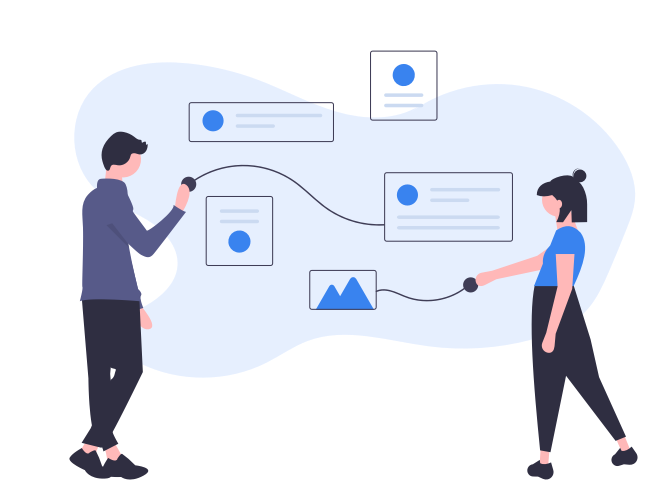
Social Media Popularity and Its Impact on Social Signals
Social signals refer to the human engagement parameters and measures of activity on social media platforms.1 The signals include likes and dislikes on Facebook, retweets on Twitter, views on YouTube, shares, votes, and pins. The social signals indicate human activity on the platform.2 They represent a human response to certain content on the platform.

Social signals show human traffic to specific content on a particular platform. The higher the number of social signals -the higher the traffic- the higher the viability of the content. It stands to reason that more people would view, like, share or tweet content or messages that are; entertaining, genuine, influential, controversial, and informative hence the increased viability assumption.
Over the years, various social media platforms such as Facebook and Twitter have increased significantly. The platform is a source of a plethora of data because of the increased use of communication sites. The information that people share on social media offers data companies the information they need to customize search engine parameters according to tastes and preferences.
The popularity of online stores has grown over the years and has been influenced by social media platforms. Social media platforms can impact the online store's SEO by "hyping" the value and quality of the products the store provides. Social media platforms offer a way for the store to reach a more extensive customer base.
To ensure search engine optimization, the store would conduct online campaigns to popularize the brand. Increased online campaigns mean an increase in the number of shares, likes, and views, which translates to social signals that affect the specific web pages' ranking.
Social Signals as A Ranking Tool on Search Engines
Search engines such as Google take advantage of the level and number of social signals to rank webpages. In other words, a webpage that had 55 likes, 25 views, and 10 shares would rank higher than one with 40 likes, 15 views, and 8 shares. The element of search engine optimization is introduced due to the use of social signals as a ranking tool for search engines.
The use of social signals as a ranking factor is relatively new. In an article written in the year 2010 author, -Danny Sullivan- observed that social signals were not necessarily considered as ranking tools.3 This lack of social signals was primarily attributed to the new nature of social media platforms and the lack of partnership between search engines and social media platforms such as Facebook. Without a link and/ agreement between the two platforms, the search engine cannot access the information and data present on the social media site.
Although there is still so much to be learned about social signals, their importance is understood and used appropriately. Social signals improve rankings on search engines, opening up a whole new world of opportunity. Through the use of social signals, a brand can achieve Search Engine Optimization.
Social Signals and Their Impact on Search Engine Optimization

Search engine optimization (SEO) is a way to increase the number of visits to a particular website and/ or webpage by ensuring that it ranks high on the search engine.2 To rank high means that the website would appear high on the lists of results displayed by the search engine for the relevant word or phrase searches. Search engine optimization s a great way to improve traffic to a brand's platform, increase its popularity, and eventually increase revenue streams.
As mentioned, social signals are used by search engines as tools to rank specific web pages. Therefore, a company can utilize social media platforms to garner more likes, retweets, shares, and views. The likes and views would contribute to the social signals linked to their brand. The social signals would then contribute to the search engine ranking and, therefore, its search engine optimization.
There are various ways through which social signals affect ranking and SEO. Social signals can affect rankings directly or indirectly.1 Direct impact of the social signals is due to the natural likes the brand receives, followers that the brand gains, and mentions on the various social media platforms that allude to the brand name.
On the other hand, the indirect impact of social media signals on rankings includes increased traffic due to increased brand awareness and increased positive reviews. It stands to reason that the more people know or hear about the brand, the more people visit the website or webpage linked to the brand.
Awareness is key to increasing the social signals that a particular brand receives. A company can increase awareness by increasing its online presence. By being vigorous and thorough about its online campaigns, the company increases its popularity, increasing the number of people who visit its website.
Additionally, social signals can be improved by managing the content shared. Content is key to everything that is Social media. A company would gain more followers, get more likes, and shares if the content associated with it is relatable, informative, and easy to use. In terms of social signals, quantity and frequency are important aspects. The more posts a company makes, the more content is available to be shared and liked.1 However, it is essential that each post is strategic to influence the brand.